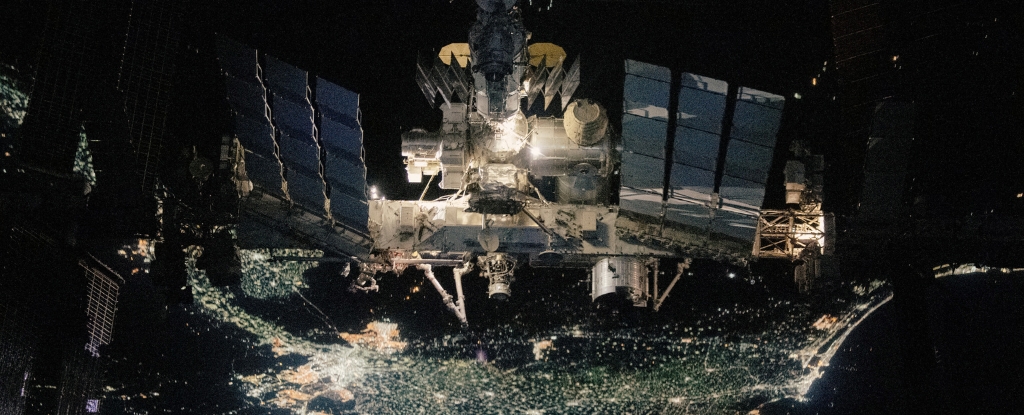Audio of a flight surgeon dealing with an emergency on the International Space Station while she was stuck in traffic triggered a brief panic on the evening of June 12 CDT.
The unnamed speaker appeared to be conducting a phone call with an unheard conversant, discussing a situation in which an unnamed commander would require hyperbaric treatment after an event that left them with decompression sickness.
“Unfortunately, the prognosis for commander is relatively tenuous, I’ll say, to keep it generic,” the speaker is heard saying.
ISS mission control has now confirmed that the audio was a ground simulation that was broadcast to the ISS livestream channel by mistake, and all crew members were safely asleep at the time of the broadcast.
There is no emergency situation going on aboard the International Space Station. At approximately 5:28 p.m. CDT, audio was aired on the NASA livestream from a simulation audio channel on the ground indicating a crew member was experiencing effects related to decompression…
— International Space Station (@Space_Station) June 13, 2024
The audio, clipped from the livestream and posted to X (Twitter), quickly generated panic. The speaker is heard discussing getting the commander “back in his suit” and prepped for hyperbaric treatment and oxygen after “severe DCS hits” – DCS refers to decompression sickness.
The discussion also involved finding the best hospital to transfer the patient after splashdown, finding one in Spain that offers both critical care and hyperbaric treatment facilities.
Decompression sickness is an unlikely but serious hazard that astronauts face in space. It occurs when transferring too rapidly from a more to a less pressurized environment.
The atmospheric environment of the ISS interior is designed to replicate the atmosphere on Earth, including the composition of 79 percent nitrogen to 21 percent oxygen, and a pressure of just under 1 atmosphere (14.5 pounds per square inch absolute) which is very close to what we experience at sea level on Earth.
The environment outside the ISS has a pressure of almost zero. So if you experience a change between the two environments, from internal to external, without adequate protection such as a properly sealed spacesuit, or if a large enough breach occurs in the ISS, you can experience decompression sickness.
What happens is that there are gasses in your body that are dissolved and form solutions in your blood and tissues. When you enter a lower-pressure environment too quickly, these gasses – predominantly nitrogen – fall out of solution and form bubbles that can cause serious problems.
These problems include obstructing blood vessels, rupturing tissue, causing internal bleeding, and causing an inflammatory immune response. And excruciating pain. Severe cases can be deadly.
And yes, it absolutely happens here on Earth, too. Divers who spend excessive periods in deep-water environments and rise too quickly can contract decompression sickness, also known as the bends.
Decompression sickness aboard the ISS would indicate a serious problem, either a breach in one of the modules, a broken spacesuit, or a poor application of procedures and protocols. So it’s a very good thing that it hasn’t actually happened.
And it’s an even better thing that personnel on the ground are practicing how to respond with cool heads in the – hopefully unlikely – event that such an emergency could occur.





